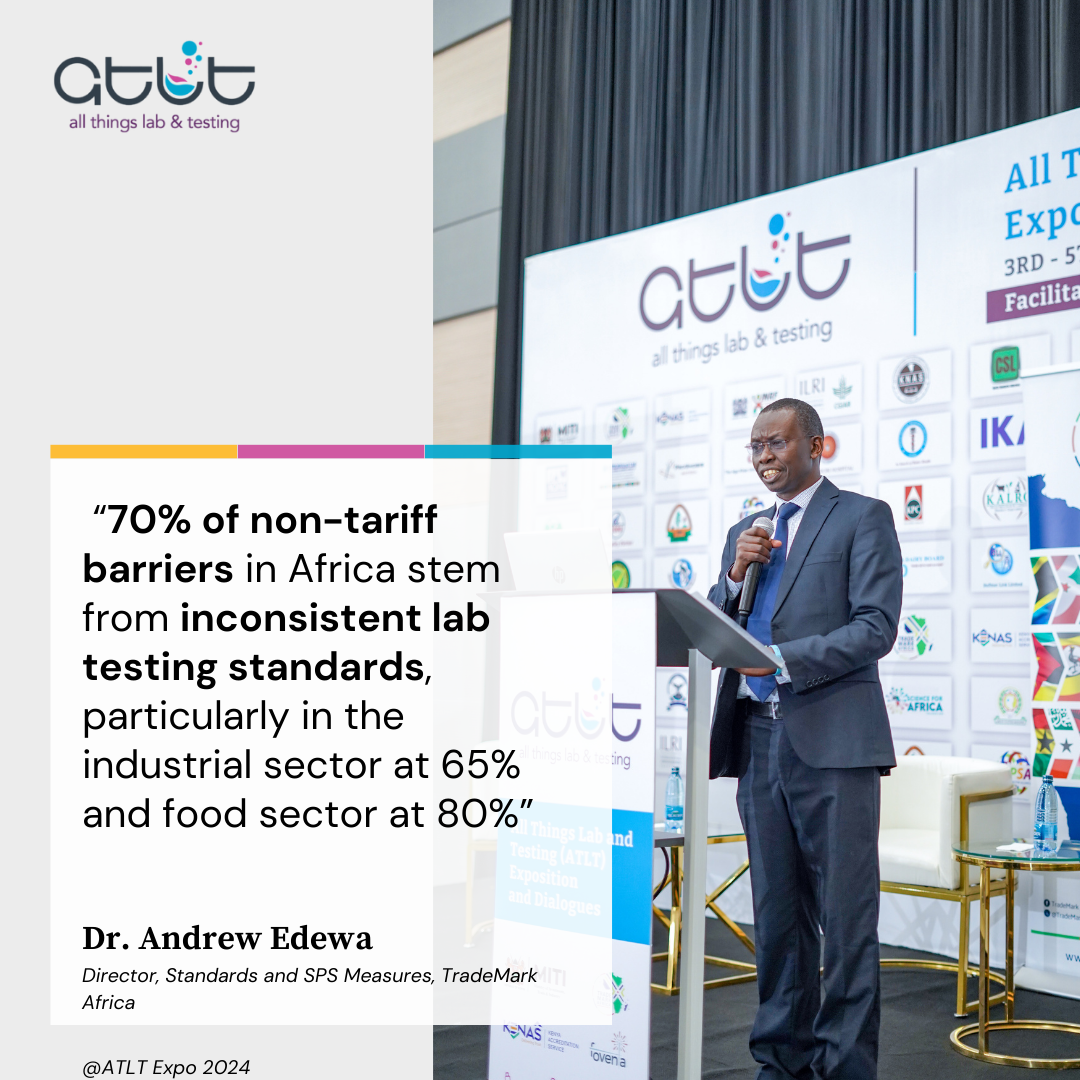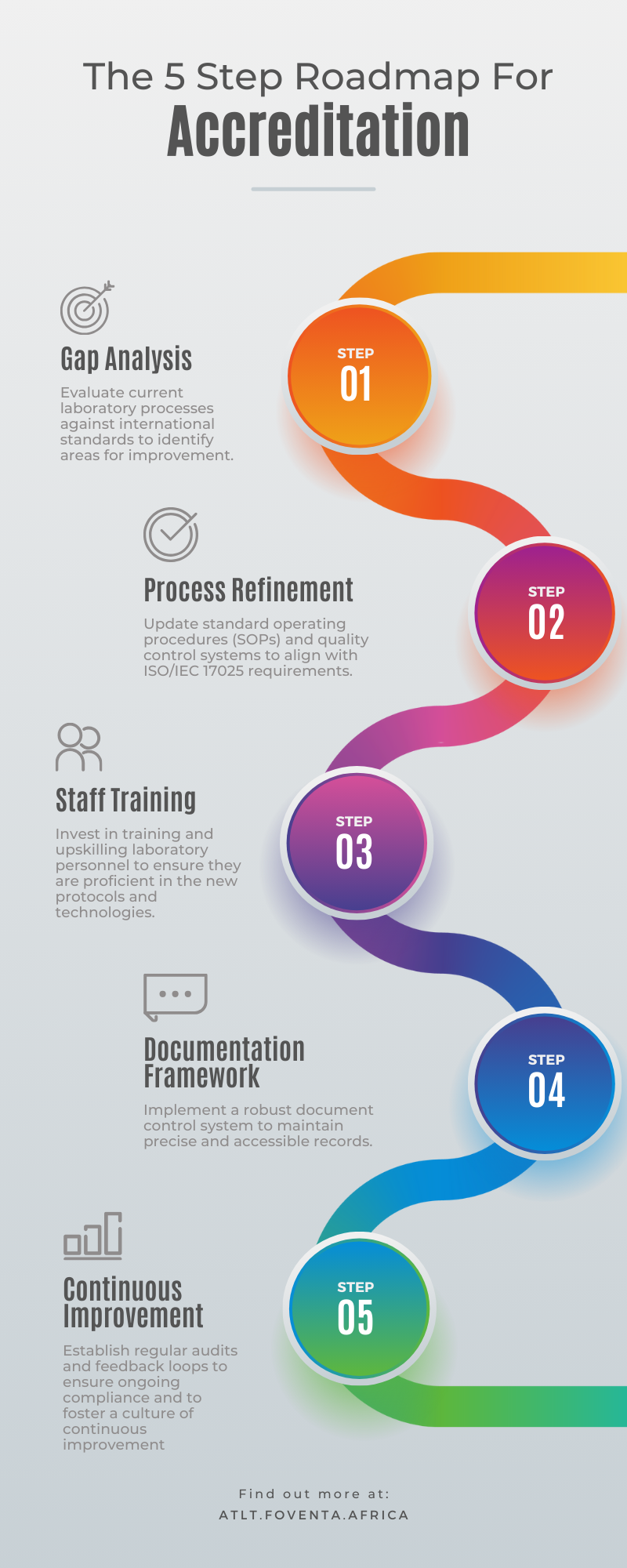Aimee Gisore, Digital Marketing Lead & Strategist, ATLT Expo
Lab Accreditation and Intra-Africa Trade: A Catalyst for Growth
Highlights:
- Fragmented Standards Cost Billions: Did you know that 70% of non-tariff barriers in Africa are due to inconsistent lab testing standards?
- Accreditation as Africa’s Trade Passport: Accreditation ensures lab test results are accepted across borders—unlocking new market opportunities and boosting competitiveness.
- Actionable 5-Step Road-Map: Learn how labs can accelerate accreditation.
In today’s rapidly evolving economy, laboratory accreditation is more than just a certification, it is a critical lever for growth and competitiveness. For African laboratories, achieving internationally recognised standards reduces non-tariff barriers, enabling products to seamlessly enter new markets without the delays and costs of redundant testing.
Fragmented Standards Are Costing Africa Billions
Did you know that 70% of non-tariff barriers in Africa stem from inconsistent lab testing standards?1 Across Africa, many laboratories operate without accreditation that instils trust in their testing processes. Without recognised accreditation, laboratories struggle to prove compliance, leading to rejected export, mistrust, and missed economic opportunities.
This deficiency affects more than just operational efficiency; it undermines the entire value chain.
Lost Revenue: Africa’s annual food import bill of $35 billion, weakens African economies, decimates its agriculture and exports jobs from the continent.2
Silent Crisis: About 30% of total EU violations of food standards are from Africa.3
Trade Paralysis: Only about 20% of Africa’s food imports originate from other African countries. With South Africa accounting for over 30% of the intra-African food trade.4


Accreditation: Africa’s Trade Passport
At the All Things Lab and Testing (ATLT) Expo 2024, industry leaders made one thing clear: achieving laboratory accreditation is essential for unlocking new marketing opportunities and driving economic growth. Here’s why:
- Breaking Down Trade Barriers
Accreditation under frameworks like South Africa National Accreditation System (SANAS), Kenya Accreditation Service (KENAS), and Uganda National Accreditation Services (UGANAS), are critical in harmonising testing standards across the continent. As part of the International Laboratory Accreditation Cooperation (ILAC) Mutual Recognition Arrangement (MRA), these bodies ensure that test results are accepted seamlessly across borders. KENAS CEO Dr. Walter Ongeti emphasised: “Accreditation is the backbone of trust in trade. It ensures that products moving across borders comply with international standards, reducing the need for re-testing and facilitating smoother market access.”
- Boosting Credibility & Competitiveness
Accredited labs see an increase in client trust and market penetration. As Rachel Kimani, Water Testing Laboratory Head at Davis & Shirtliff, remarks:
“Accreditation has elevated our credibility, opened new business opportunities, streamlined our operations, and empowered our staff to aim higher.”
- Future Proofing African Industries
For African laboratories, achieving internationally recognised standards such as ISO/IEC 17025 is not only about ensuring quality and reliability, but also about unlocking new trade opportunities across the continent under frameworks like the African Continental Free Trade Area (AfCFTA).
The AfCFTA, forsees a gradual elimination of tariffs over the next ten years for least developed countries for 90% of the tariff lines.5
How to Accelerate Accreditation: A 5-Step Road-Map
1. Conduct a Gap Analysis
Evaluate current laboratory processes against international standards to identify areas for improvement.
2. Process Refinement
Update standard operating procedures (SOPs) and quality control systems to align with ISO/IEC 17025 requirements.
3. Invest in Staff Training
Invest in training and upskilling laboratory personnel to ensure they are proficient in the new protocols and technologies. Upskill teams on ISO 17025 requirements through workshops.
4. Build a Documentation Framework
Implement a robust document control system to maintain precise and accessible records of all testing activities and quality checks.
5. Embrace Continuous Improvement
Accreditation is not a one-off event. Establish regular audits and feedback loops to ensure ongoing compliance and to foster a culture of continuous improvement.

Lab accreditation is not merely a regulatory requirement—it is a strategic tool that propels economic growth, enhances market access, and builds a robust, competitive testing ecosystem across Africa. By following the actionable steps outlined above and learning from successful case studies, laboratories can overcome current barriers and contribute to the broader goals of intra-Africa trade.
For more detailed resources and insights, please visit our ATLT Resource page to explore the future of trade and innovation across Africa.
